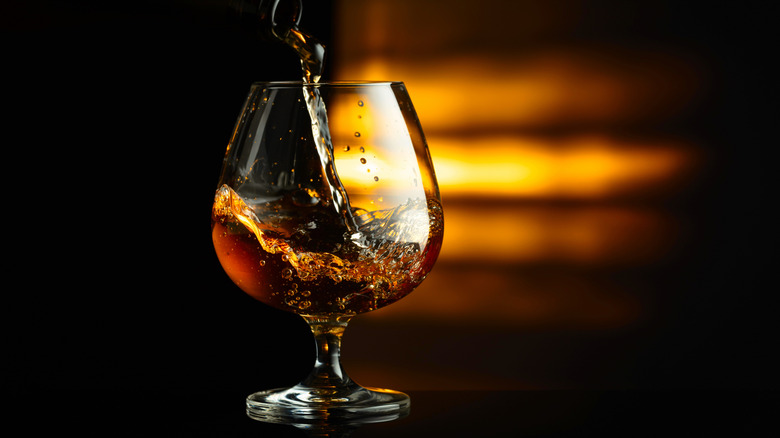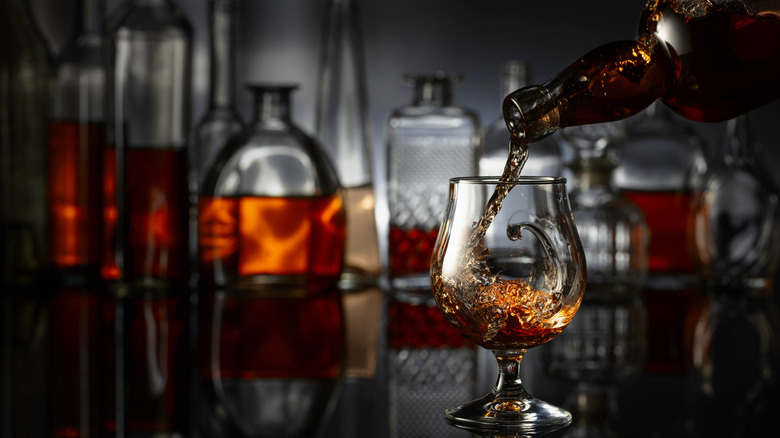The Affordable Cognac Alternative To Use In Recipes
For years, Cognac has been celebrated in American culture as a symbol of social status. While there's reason to enjoy a glass a la Leon Phelps, at a cost of $20.00 to $52.00 for a 750-milliliter bottle of VS Cognac, they can get expensive due to its strict regulations and production process. Thankfully, they're also just a type of brandy.
This means the two are swappable if needed at only $11.00 to $20.00 for the same quantity. However, there's a lot that makes bottles of Cognac so special: They must only be produced in France's Cognac region, are specific to six white wine varietals, and must be aged in French oak barrels for at least two years.
Certainly, there is a difference between Cognac and brandy. In comparison to Cognac's meticulous nature, brandy is a blanket term for a spirit distilled from virtually any fruit or wine. Its looser standards allow for better versatility at a faster pace, resulting in its affordability.
In profile, VS (very superior) Cognacs tend to have a lively and light mouthfeel. The more aged ones, such as the VSOP (very superior old pale) Cognacs, are smooth, creamy, and medium in body and intensity. They tend to be vinous, with vivid tastes of fruit and warm, spicy oak, and vanilla notes. XO (extra old) typically tastes fruity and smooth, with some notes of spice and plenty of the barrel they were stored in, like sandalwood.
Brandy's mouthfeel can vary — generally, the traditional grape is the closest to Cognac, but brandies tend to be smooth and medium-bodied, with a more straightforward taste. Their flavor resembles what they're made from first, followed by sweet notes of fruit, flowers, and wood.
The best ways to enjoy brandy and other Cognac alternatives
Since a well-aged brandy has a more velvety, nuanced quality, it would also be a solid replacement for Cognacs. In the rare moment that you're attempting to make the switch from Cognac and brandy isn't an option, there are other alternatives: While it's not an exact match, sherry's fortified wine has similar alcoholic content and will mimic Cognac's fruity and bright flavor notes. Depending on the goal, Armagnac could be among your considerations since it has a similar process and profile. Just remember that there is a difference between Cognacs and Armagnacs as well with the latter being more richly pronounced and earthy in profile.
When it comes to substituting in drink recipes, it's important to note that Cognac's alcohol content clocks in at a minimum of at least 80 proof; its substitutes like brandies tend to vary between 70 to 120 proof. From here, it'd be best to cater to the recipe's other flavor traits in most cases. The Sidecar includes triple sec and lemon juice, so substituting with apricot brandy would maintain its medium body while emphasizing the drink's bright and sweet citrus notes. Since Cognac is one of the two ingredients needed for a French Connection, a brandy from the Calavados family would be an exceptional substitute. The essential French spirit's notes of baked apple, spices, and vanilla partner nicely with the warm, nutty amaretto while preserving the original's familiar texture.


